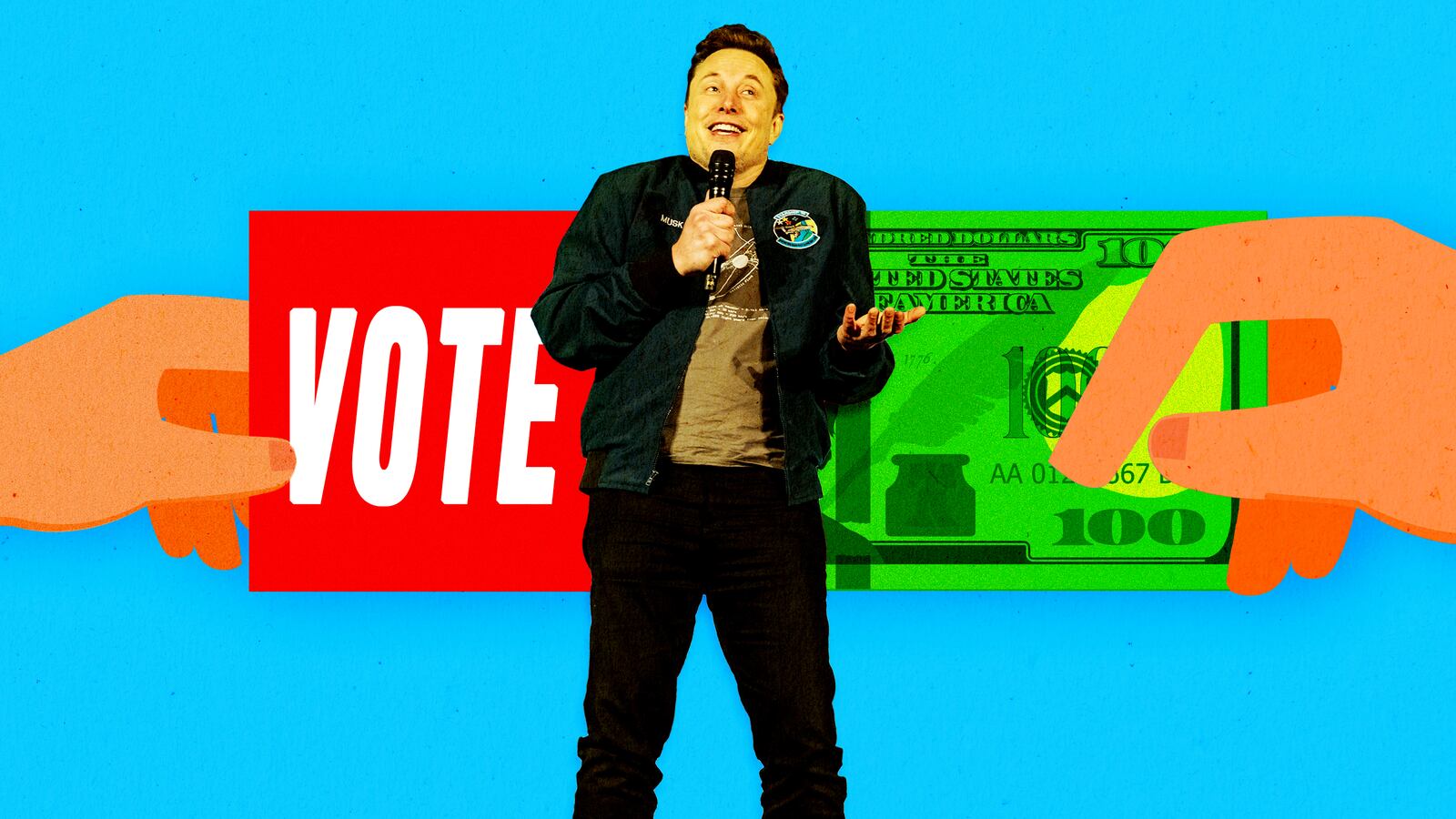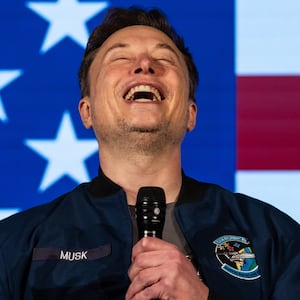Shan Wu is a former federal prosecutor who served as counsel to Attorney General Janet Reno
Kudos to Philadelphia District Attorney Larry Krasner for exposing the illegality of the “pay you to play” scheme devised by Elon Musk and his America PAC to try and buy votes for Trump. Krasner—a Democrat—filed a civil lawsuit seeking an injunction against Musk’s continued $1million-a-day giveaway to winners who must be registered voters and who must sign his MAGA-style petition equating the First Amendment with the right to bear arms.
The lawsuit does not allege election interference, but instead focuses on the scheme allegedly being a public nuisance that also violates Pennsylvania’s consumer protection laws that prohibit deceptive practices.
But ill-effects upon the election are referenced in the suit, and the civil action does not rule out future criminal prosecutions by the state or—don’t hold your breath—the Justice Department, based on election interference.
Evidence of the alleged violations looks obvious and strong. Lotteries are defined under Pennsylvania law as requiring (1) a prize to be won, (2) based on chance, (3) consideration paid by the player.
These elements are met by the prize being one million dollars, the winner supposedly drawn at random, and consideration—something of value—given by the entrant supplying their personal data as well as supporting Musk’s petition. For what it’s worth Musk also calls it a lottery.
The value proposition for Musk is twofold—not only does he get to help his chosen candidate by adding a financial incentive to register, but he also gathers more of his favorite thing of value: personal data. The information supplied to enter must include the entrant’s full name, email address, snail mail address, and phone number, which will all be entered into the political action committee’s database.
Having met the legal definition of a lottery, the offer then fails to meet the fine-print requirements. This is where Musk gets into hot water and gives rise to the D.A.’s concerns. Unlike every other lottery, Musk fails to provide what area the odds are of winning. Anyone who has ever played Powerball is familiar with phrases like “odds in winning are XXX.”
While all those who play ignore the odds—at a certain point the probability of winning is beyond the grasp of the human mind—it is still a requirement that they odds be shown. Also lacking is any clue about the integrity of Musk’s process.

For example, how is the “random” drawing conducted and who conducts it. Certainly it gives observers pause that the first two winners happened to be in attendance at the rally at which the winner was announced and Musk assured the attendees that for the first winner it was a “surprise.”
One has to wonder about the the odds of those coincidences. A complete lack of effort to follow the law requiring these types of disclosures for lotteries should be surprising given Musk’s sophistication and legal resources. But this is the same man who seems to have made no effort to follow immigration law when he chose to work in the United States illegally while on a student visa.
Given that the lottery scheme is directed at battleground states in what looks like an effort to effect the election via enormous sums of money, one might also wonder what federal laws might be broken. As noted by one commentator, the federal violations seem potentially plain. 52 U.S.C. 10307(c) prohibits offering or accepting payment for either registration or voting.
The Justice Department Election Crimes manual even specifically lists “lottery chances” as a prohibited form of bribe in the area of election law crimes. The characteristics of the scheme even alarmed eleven Republican former lawmakers and Justice Department officials and advisors sufficiently that they asked Attorney General Merrick Garland to open an investigation about it.
So what has Attorney General Garland and the DOJ done? They wrote a letter. According to reporting, the letter “warns” Musk and his PAC about potential election law violations but fails to actually threaten criminal prosecution or even demand the scheme cease. Nor does there appear to be any deadline imposed. It’s more like a primer on election law just in case Musk’s army of lawyers had not bothered to look at applicable law. The DOJ has not even commented publicly about the letter.
The lack of comment can perhaps be attributed to the DOJ’s worry about one of its many rules about taking actions too close to an election. Obviously such a concern could have been remedied by not even sending the letter but having sent the letter it makes no sense to not comment upon such an obviously important issue.
But DOJ’s silence and relative inaction is completely consistent with Merrick Garland’s overly cautious approach to avoiding looking political. An approach which has made DOJ consistently late to the party when it comes to protecting us against election interference by Trump and his allies.
But while the attorney general waits for Musk to write him back even as the election is only days away, the work of protecting election integrity is again being carried by state prosecutors. Just as Manhattan D.A. Alvin Bragg convicted Trump for business records fraud for the purpose of election interference, D.A. Krasner is enforcing his state’s laws against a transparent effort to mask election interference via an illegal lottery. Ironically, we will hear many voices from both the MAGA side as well as the Democratic side criticizing Krasner’s case as either politically motivated, legally insignificant, or both.
But those criticisms miss the mark. Prosecutors shouldn’t wait for the right political moment to bring cases. They should bring cases when they have evidence of a crime. That’s the best approach to take when it comes to protecting the rule of law.






